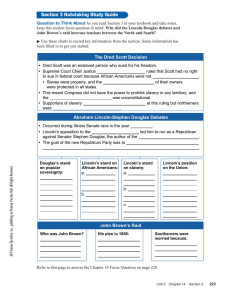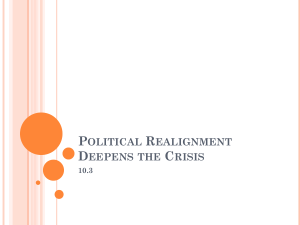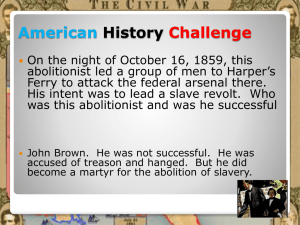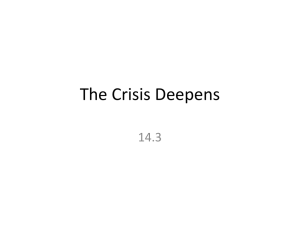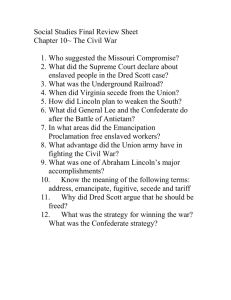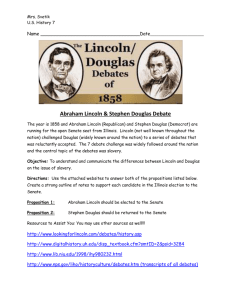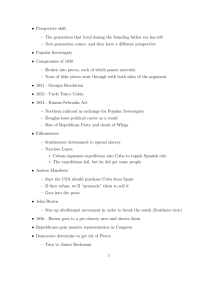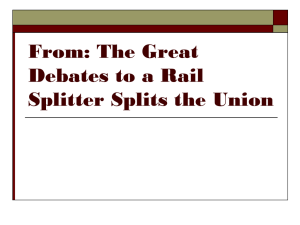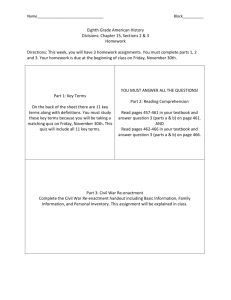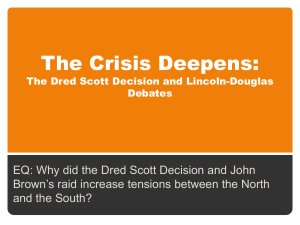Challenges to Slavery - San Pasqual Union School District
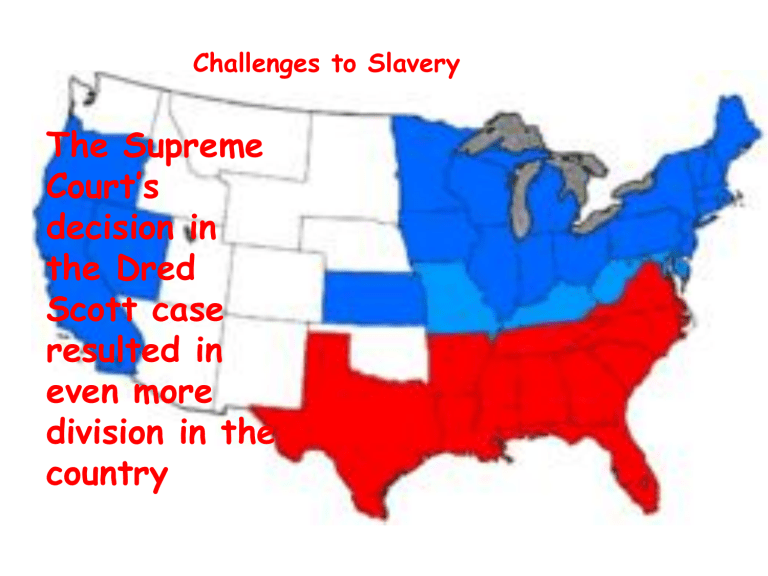
Challenges to Slavery
The Supreme
Court’s decision in the Dred
Scott case resulted in even more division in the country
• After the Kansas/Nebraska Act, the Democratic Party began to divide among sectional lines
• Northern Democrats left
• The Whig party was divided over slavery as well and collapsed
• In 1854 antislavery Whigs and
Democrats joined with Free-
Soilers to form the Republican
Party
• The Republicans won control of the House of Reps-No Support in the South
• Democratic Party now is mainly in the South
The Election of
1856
• Republicans choose
John C. Fremont to run for President “Free Soil,
Free Speech, and
Fremont.”
• Democrats choose
James Buchanan and endorsed the idea of popular sovereignty
• Buchanan won winning all southern states except Maryland
The Dred
Scott Decision
• Until 1857, slaves who had lived in free states or territories were successful when they sued for their freedom
• Dred Scott was a slave who was brought into a free state and free territory; therefore, he sued for his freedom
• Chief Justice, Roger B. Taney ruled that Dred Scott was a slave. As a slave he had no rights, and Scott was property of his owners.
• The fifth amendment prohibits
Government from taking away anyone’s property w/o due process of law.
• Taney also stated that Congress had no power to prohibit slavery. No one could prohibit slavery because it would be taking a person’s property.
• It meant that the Constitution protected slavery.
Reaction to the Dred
Scott Decision
• Rather than settle the issue, the Supreme
Court’s decision divided the country even further
• The South was elated
(happy)
• Republicans and other antislavery groups were outraged
• They called the Dred
Scott Decision “The greatest Crime” ever committed in the nation’s courts.
Lincoln and
Douglas
• The Lincoln and Douglas debates helped Lincoln emerge as a leader
• Congressional election of
1858, was the center of national attention
• Stephen Douglas was called
“the Little Giant”-said, “let the states decide”-Popular
Sovereignty
• Abraham Lincoln was nearly unknown born poor in Kentucky
• House Divided Speech
The Lincoln Douglas
Debates
• Not as well known as
Douglas, Lincoln challenged
Douglas to a series of debates
• 7 meetings in 3 months in
Illinois
• Slavery was the main topic
• Douglas questioned Lincoln if
African Americans are to be equal to whites?
• Lincoln says the real issue is if slavery is wrong-the republican party believes it is wrong.
• Lincoln lost the election, but the debates had won him a national reputation
• These debates are reenacted every year in Illinois-they are perhaps the most famous debates in US History
The Raid on Harpers Ferry
• As the Republican party begins to grow in power, Southerners began to feel threatened
• In late 1859, John Brown led 18 men, both white and Black, on a raid on Harper’s Ferry, Virginia-an arsenal, a storage place for weapons and ammunition.
• Brown hoped to lead a slave rebellion by arming slaves against their owners
• Financed by abolitionists
• Brown and his men were defeated and he was sentenced to death by hanging
• Transcendentalist, Ralph Waldo
Emerson called Brown a Martyr-a person who dies for a cause he believes in.
• John Brown’s Death became a rallying point for abolitionists
• South see Brown’s ties to abolitionist as a great Northern conspiracy-nation is nearing disaster
